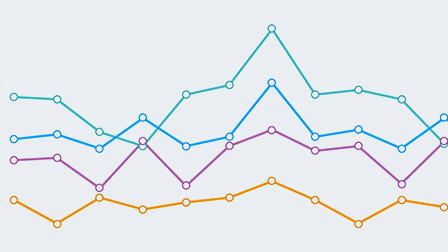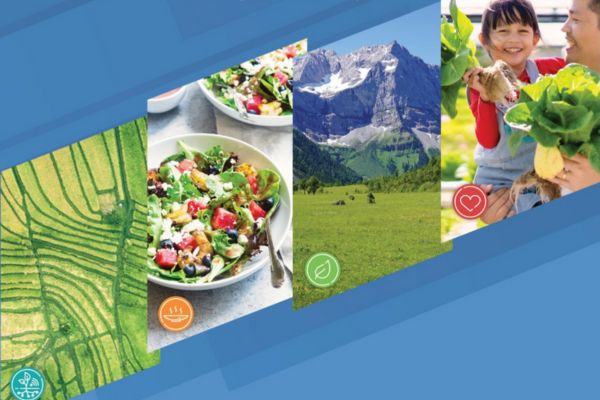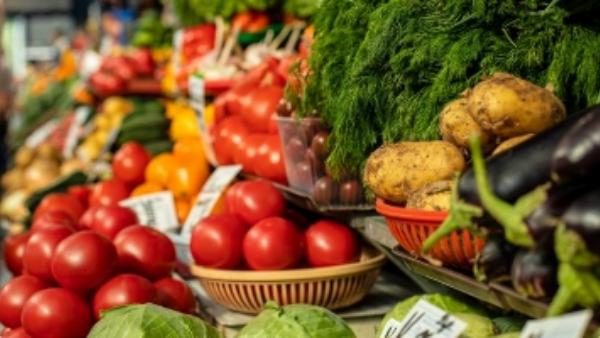Highlights
Director-General

News
The Status of Youth in Agrifood Systems: New FAO report shines light on pitfalls and prospects for 1.3 billion young people
As key agents of change, the current generation of young people must increase food production, replace an aging workforce, and adapt to increasing extreme climate events

News
Green Climate Fund approves a record $300 million for FAO-designed projects in Papua New Guinea, Saint Lucia and the Sahel
The initiatives focus on forestry management, fisheries transformation and land restoration

QU Dongyu closes 44th FAO Conference urging ingenuity, solidarity and collective will
FAO Members agreed on the Organization’s Programme of Work and Budget for the biennium 2026-2027

In Focus
44th FAO Conference
The Conference is FAO’s supreme Governing Body, determining the Organization’s policy and approving its budget. Access the agenda, meeting documents and more information on the 44th Session.

In Focus
Discover the enhanced FAO Transparency Portal
Explore new dashboards on programme, budget and HR, alongside updated project data, for deeper insights into how we work.

In Focus
FAO response to global food security challenges
Data analyses, policy recommendations, and actions on the ground.

Publication
The Status of Youth in Agrifood Systems
Find out how youth engage with, benefit from, and contribute to agrifood systems on a global scale.

Interactive story
Turning evidence into action
Discover how we evaluate our work toward transforming agrifood systems.

In Focus
Investing in rural youth
Young people are key agents of change. Their empowerment is key to inclusive rural transformation.
Director-General

QU Dongyu leads first ever Treaty Ceremony reinforcing FAO’s normative role
The event marked a significant milestone in celebrating Members’ legal and political commitment to FAO’s mandate
Join the conversation
Voices of Impact
Investing in Jharkhand’s women
30/06/2025
The Jharkhand Opportunities for Harnessing Rural Growth (JOHAR) programme, in Jharkhand, eastern India, is helping 200 000 rural households – particularly women from Scheduled Tribes – improve their livelihoods and incomes through high-value agriculture, animal husbandry, fisheries, irrigation and non-timber forest products.
Video
FAO’s 80th anniversary
30/06/2025
Join us in shaping a year of global action to transform agrifood systems, leaving no one behind.
Podcast
FAO Brief – 23 June 2025
23/06/2025
In this episode of the FAO Brief: conflict, disease and displacement drive hunger to catastrophic levels in parts of South Sudan; FAO released the most detailed report ever on marine fish stocks; and the UN recognizes three marine restoration projects in East Africa, Mexico and Spain as global models.
Data
Percentages of biologically sustainable and unsustainable fishery stocks by FAO major fishing area 2021
2020 World
31.2%
2010 World
31.5%
In depth

Statistics
FAOSTAT - Food and agriculture data
FAOSTAT provides free access to food and agriculture data for over 245 countries and territories and covers all FAO regional groupings from 1961 to the most recent year available.

Publication
Medium Term Plan and Programme of Work
The Director-General’s Medium Term Plan 2026-29 and Programme of Work and Budget 2026-27.

In Focus
FAO Data Lab
The FAO Data Lab for Statistical Innovation modernizes the statistical business process, with a specific focus on emergency contexts, when having access to timely information is very important.
FAO and the SDGs
Hover the mouse over an SDG icon for more information
A world free from hunger and malnutrition where food and agriculture contributes to improving the living standards of all

FAO works with governments and partners to empower some of the world’s most marginalized people to end rural poverty.

FAO helps ensure food security by developing ways of growing food that will work in the future so that millions of people don’t go hungry.

Good health starts with nutrition. FAO sets global standards and works with governments and the private sector to ensure food quality and safety throughout the food chain.

FAO invests in educational systems for rural communities and supports improved access to primary education and school meals in order to create equal opportunities for all and chances of lifelong learning.

FAO supports gender equality in the agricultural sector in an effort to raise levels of nutrition in local communities and improve agricultural productivity.

FAO works with governments to ensure water use in agriculture is made more efficient, equitable and environmentally friendly.

FAO promotes the use of renewable energies and works to ensure access to modern energy services across the food chain.

FAO seeks better economic opportunities for all by investing in sustainable agricultural practices and food systems that reduce inequalities and create decent jobs.

FAO seeks to secure a future for rural communities via investments in transportation, irrigation, food storage facilities and communication technologies.

FAO works with countries and partners to generate employment in rural areas, ensure access to natural resources for the most vulnerable and connect farmers to markets.

FAO works to improve urban healthcare, water quality and rethink city region food systems to help deter the negative effects of sprawling urbanisation.

FAO coordinates major global initiatives and projects to tackle food waste and loss, partnering with international organisations, the private sector and civil society.

FAO supports countries in responding to the threats of climate change by providing advice, data and tools for better agricultural policies and practices.

FAO, in partnership with governments and fishing communities, implements best practices in fisheries to ensure our oceans are protected as a means of livelihoods.

FAO promotes sustainable approaches to natural resource management and supports endeavours that promote a balance between conservation and development initiatives.

FAO plays a critical role in peacebuilding, restoring rural livelihoods, building resilience and participatory approaches to policymaking.

FAO acts as a neutral policymaking forum and develops partnerships with all concerned with food and agriculture to ensure a world free from hunger.


















Globally Important Agricultural Heritage Systems.
FAO BLOG
Investments that dare to solve the crisis of food insecurity
Crises of food insecurity are, in effect, crises of financing



